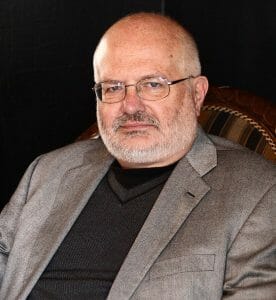As the son and grandson of fundamentalist Seventh-day Adventist preachers, Numbers grew up in a very conservative household, and attended Southern Missionary College, a Tennessee Adventist school. He went on to get his master’s degree at Florida State University, and a Ph.D in the history of science from the University of California, Berkeley. He was quickly hired by Loma Linda University, run by the church. Asked to create a lecture about religion for medical students, he started researching Ellen G. White, a “prophetess” and the co-founder of the SDA Church. The school didn’t like the direction of his research, and fired him. He turned his research into a book, Prophetess of Health (1976).

Looking back in a 2008 interview, when a revised and expanded edition was published, Numbers said he “had a predilection to look at contemporary influences, and context, instead of just saying something came straight from God. … I started out with: How much can I explain without invoking God? Of course that got me into trouble in some quarters.” Particularly with the Adventist Church; he was fired by Loma Linda. “When I have to identify myself,” he said, “I identify myself as an agnostic.” He moved to be on the faculty of the University of Wisconsin, Madison, and was elected as the President of the American Society of Church History.
Numbers is best known for The Creationists (1992, revised and expanded in 2006), which traces the history of anti-evolutionism, aka Creationism. “Its seedbed was among the fundamentalist Protestant Churches in the Southern States of the USA,” the London Times said in a review. “Ronald L. Numbers’s massively well-documented history traces in detail how it grew into a worldwide phenomenon. Its beginnings were unpropitious.” Again, both creationists and evolutionists praised the work for its comprehensiveness. The book “tells the fascinating story of how Creationism has mutated, adapted, and evolved,” said Elliott Sober, a philosophy professor at the University of Wisconsin, Madison, without any hint of irony. His Darwinism Comes to America (1998) was published shortly after Pope John Paul II declared evolution was “more than just a theory.” In 2009, he was the editor of Galileo Goes to Jail and Other Myths About Science and Religion, which debunks a multitude of claims regarding religion and science. And in 2008, he was awarded the George Sarton Medal by the History of Science Society for “a lifetime of exceptional scholarly achievement by a distinguished scholar.” Ronald Leslie Numbers died July 24. He was 81.
